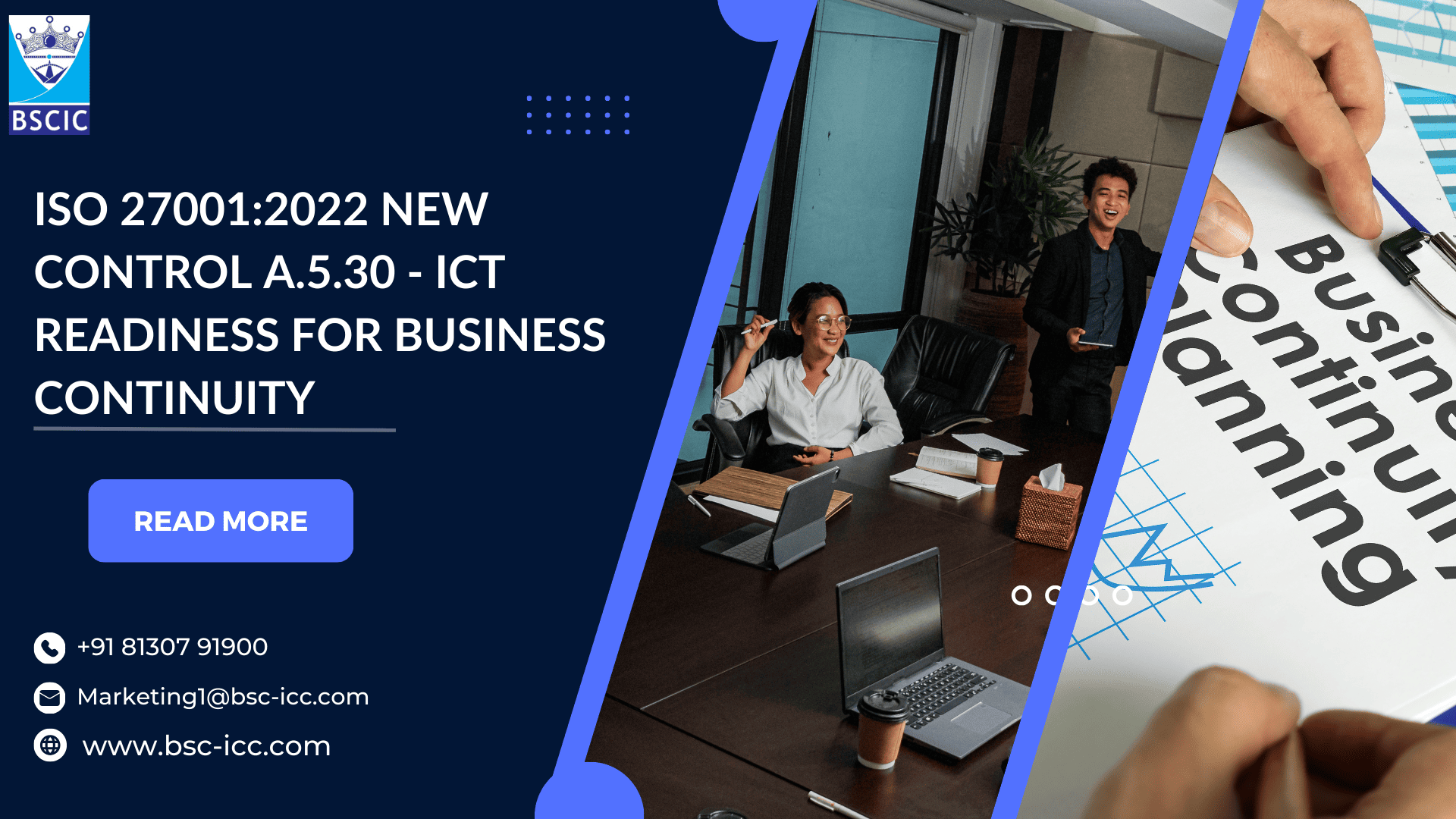
ISO 27001:2022 New CONTROL A.5.30 - ICT Readiness for Business Continuity
ICT (Information and Communications Technology) readiness is crucial for ensuring business continuity, especially in today's digital age where businesses heavily rely on technology for their operations.
In Laymen Language
ICT readiness for business continuity" refers to how prepared a company's Information and Communication Technology (ICT) systems are to keep the business running smoothly during unexpected events or emergencies.
Imagine ICT as the backbone of a business's technology: it includes things like computers, networks, servers, and software that employees use every day. Being "ready" means these systems are set up to handle disruptions like power outages, cyber attacks, or natural disasters without causing major interruptions to the business.
So, ICT readiness for business continuity is all about ensuring that a company's tech infrastructure is strong enough to keep operations going, even when faced with unexpected challenges. This readiness involves planning, preparing backup systems, securing data, and having strategies in place to quickly recover if something goes wrong.
Here are some key aspects of ICT readiness that contribute to business continuity:
- Infrastructure Resilience: This involves having robust hardware and software systems in place that can withstand disruptions. Redundancy in servers, storage systems, and network infrastructure helps mitigate risks of failure during unexpected events.
- Data Backup and Recovery: Implementing regular and secure data backup procedures ensures that critical business data is protected and can be restored quickly in case of data loss due to cyber attacks, hardware failures, or natural disasters.
- Cybersecurity Measures: Strong cybersecurity practices such as firewalls, antivirus software, intrusion detection systems, and regular security audits are essential to protect ICT systems from cyber threats that could disrupt business operations.
- Remote Access and Mobility: Enabling remote access to ICT systems and applications allows employees to continue working from remote locations during disruptions such as pandemics, severe weather, or other emergencies.
- Cloud Services: Leveraging cloud computing services for storage, computing power, and software applications can enhance ICT readiness by providing scalability, flexibility, and redundancy.
- Communication Systems: Reliable communication tools such as VoIP (Voice over Internet Protocol), instant messaging, and video conferencing platforms are crucial for maintaining communication among employees, customers, and stakeholders during disruptions.
- ICT Governance and Planning: Having a well-defined ICT governance framework and continuity planning ensures that there are clear protocols and procedures in place for managing disruptions and minimizing downtime.
- Training and Awareness: Regular training sessions for employees on ICT tools, cybersecurity best practices, and emergency procedures can improve readiness and responsiveness during disruptions.
- Testing and Simulation: Conducting regular testing, drills, and simulations of ICT disaster recovery and business continuity plans helps identify weaknesses and ensure that systems and personnel are prepared for actual disruptions.
- Supplier and Partner Readiness: Assessing the ICT readiness of key suppliers and partners is important, as disruptions in their systems could also impact your business continuity.
In summary, ICT readiness for business continuity involves a holistic approach that encompasses infrastructure resilience, data security, remote access capabilities, cloud services, effective communication systems, governance frameworks, training, testing, and collaboration with partners. By addressing these aspects comprehensively, organizations can enhance their ability to maintain operations and serve customers even during unexpected disruptions.

